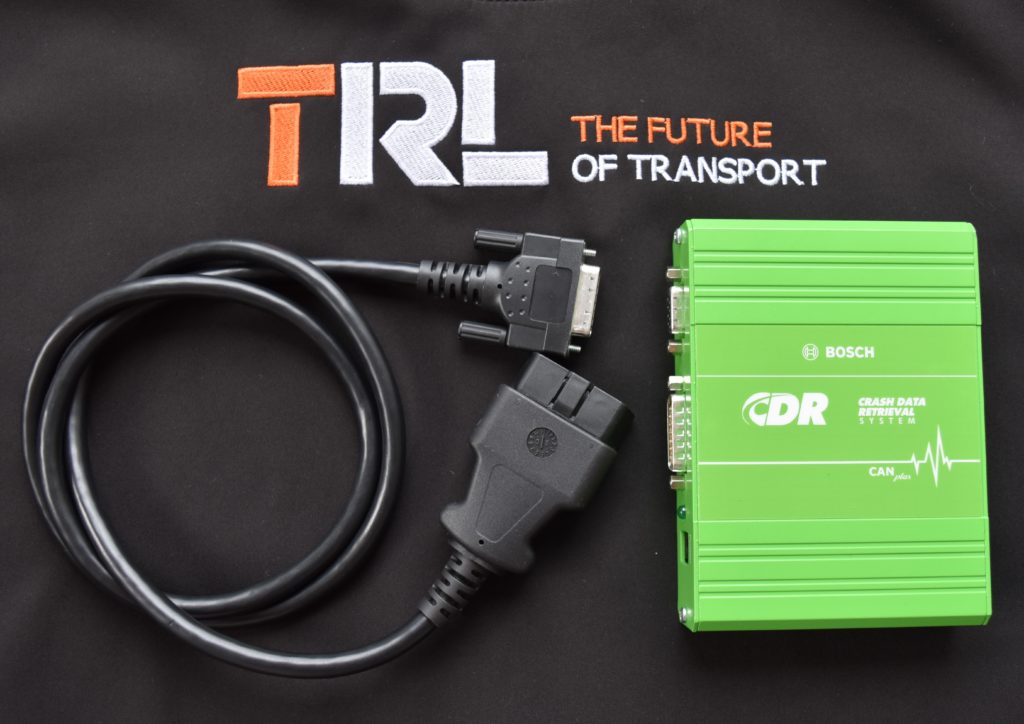UK and EU laws governing the accessibility of vehicle Event Data Recorder (EDR) evidence must be changed to improve safety, reduce costs, speed up legal proceedings and save lives.
The global centre for innovation in transport, TRL, is calling for an update to UK and EU legislation whereby EDR data must be made available to authorities, insurers and road safety researchers.
Event Data Recorders, or EDRs, were introduced in the 1970s and are present in most new vehicles today. Essentially, an EDR is the equivalent of a black box that records a range of data from safety systems fitted to the vehicle in the seconds before, during and after a collision.
Typically used to record information about road traffic collisions, EDR data helps provide accurate and reliable information of the actions taken prior in the pre-collision phase.
Unfortunately, in the UK and EU, the accessibility of EDR data is restricted due to a lack of up-to-date legislation. Currently, manufacturers are not required to provide authorities, road safety researchers or vehicle owners with EDR data.
Experts within TRL believe that an update to the legislation regarding the accessibility of EDR data is long overdue. Dean Beaumont, Accident Reconstruction Consultant for TRL’s Expert Witness Team, explained: “Physical evidence and CCTV footage is vital in the reconstruction of road traffic collisions. However, EDR’s provide important information about the movements of a vehicle before, during and after a collision event that, in many cases, could not be obtained from any other source.
“When analysed by a suitably qualified expert, EDR data allows for a detailed and more accurate investigation into road traffic collisions, specifically in regard to causation and liability. The advantage of EDR’s are that they are already installed in the car; it is simply a case of being able to access the data.
“In the UK and EU, manufacturers are slowly allowing access to this data, but this only applies to a very small number of vehicles. Sharing of EDR data should not be placed above lives in serious and fatal collisions. For example, the United States are far ahead of other regions when it comes to EDRs, as the data is regulated and access is also governed by legislation.”
EDR data will become even more important in a connected and automated future as systems grow increasingly complex. As driverless vehicles advance from semi to fully automated, it will be vital to understand the data of in-vehicle safety systems and what the vehicle or a safety driver was doing prior to a collision.
Technology is advancing at an unprecedented rate and UK and EU legislation must not fall behind. Regulating the access of EDR data in the automotive industry will help advance collision reconstruction and the industry’s understanding of vehicle design and safety to that of the aviation industry. The United States model of EDR data regulation is already showing how useful this information can be.
Restricted access to EDR data delays investigations and legal proceedings. TRL is calling for legislation to be reviewed to allow police, insurers, the courts and road safety researchers access to EDR collision data.
TRL recommends that a minimum standard is agreed to require manufacturers to make EDR data available to authorities. Access to this data will improve experts’ understanding of the causation of collisions and provide significant benefits to safety by advancing future vehicle design.







